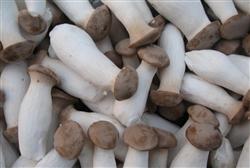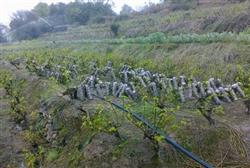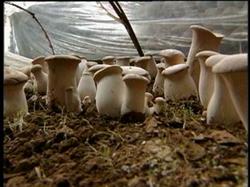Cultivation techniques of rare Edible Fungi Pleurotus eryngii

Pleurotus eryngii is a precious fungus suitable for both food and medicine, with thick meat, crisp and tender texture, dense stalk tissue, milky white and rich nutrition, so it is listed as one of the most potential edible fungi in the 21st century. Due to the high pollution rate, low bioconversion rate, ups and downs in production, unstable cultivation quantity and yield, it is necessary to master its biological characteristics and take scientific technical measures in order to achieve the ideal goal. 1. Nutritious Pleurotus eryngii is a kind of edible fungus with strong ability to decompose cellulose and lignin, which is suitable for growth of many substrates, such as sawdust, cottonseed hull, corncob, bean stalk and so on. The results of cultivation experiments showed that when the sawdust content in the medium was high, the mycelium grew slowly, the growth and development cycle was long, and the yield was low, while when the cottonseed hull content was high, the mycelium grew fast. The output is high. The addition of wheat bran or corn meal plays a good role in promoting the growth and development of Pleurotus eryngii and increasing the yield of fruiting body. The addition of bean stalk powder can also increase the yield of Pleurotus eryngii. 2. Temperature the maximum suitable temperature for mycelial growth of Pleurotus eryngii is 25 ℃, the optimum temperature for primordium formation is 10 ℃-18 ℃, the optimum temperature is 13 ℃-16 ℃, and the optimum temperature for fruiting body development is 8 ℃-20 ℃, and the optimum temperature is 10 ℃-16 ℃. It is difficult to produce mushrooms when the temperature is lower than 10 ℃ or higher than 20 ℃. Therefore, it is very important to select the suitable cultivation period of Pleurotus eryngii. 3. During the mycelial growth stage of Pleurotus eryngii, the water content of the culture material should be 60% and 65%. The ratio of total dry material to water is 1. 1. 1. 1 and 1.4, and the relative humidity of the air is 60% and 70%. At the stage of the formation and development of the fruiting body, the air humidity is required to be 85% Mel 95%. 4. The requirement of air in the mycelium growth stage of Pleurotus eryngii is not strict. In the process of mycelium growth, the carbon dioxide accumulated in the bottle bag can promote the mycelium growth. However, sufficient oxygen is needed in the stage of primordium formation to promote the growth of mushroom buds. The concentration of carbon dioxide in the fruiting body growth stage should be less than 2000 mg / kg. 5. The mycelium growth stage of Pleurotus eryngii does not need light, and the mycelium growth rate is faster when cultured in the dark culture room. Scattered light is needed for the formation and development of fruiting body, and the suitable light intensity is 500 Mel 1000 lux. 6. The pH mycelium could grow at PH4- 8, and the optimum PH5.5-6.5 for PH6.5-7.5; was the best.
- Prev

Interplanting black fungus in orchard
The benefit of planting Auricularia auricula by trenching between orchard rows is considerable. The main cultivation methods are as follows: 1. The original culture material formula is sawdust 78%, rice bran (or bran) 5%, corncob 15%, gypsum powder 1%, sucrose 1%. Weigh all kinds of ingredients according to the above proportion, first dissolve sucrose in water, then stir sawdust, rice bran and gypsum powder.
- Next

Operation of cultivation of Pleurotus eryngii with biogas residue before mushroom emergence
The cultivation of Pleurotus eryngii with biogas residue has the advantages of developing new resources and saving costs, and generally reduces the production cost by about 30%. The operation techniques before the cultivation of Pleurotus eryngii with biogas dregs are introduced as follows: 1. Biogas residue treatment: spread the biogas dregs extracted by farmers' biogas digester on the flat ground, let them aerate and dry to moisture content.
Related
- Fuxing push coffee new agricultural production and marketing class: lack of small-scale processing plants
- Jujube rice field leisure farm deep ploughing Yilan for five years to create a space for organic food and play
- Nongyu Farm-A trial of organic papaya for brave women with advanced technology
- Four points for attention in the prevention and control of diseases and insect pests of edible fungi
- How to add nutrient solution to Edible Fungi
- Is there any good way to control edible fungus mites?
- Open Inoculation Technology of Edible Fungi
- Is there any clever way to use fertilizer for edible fungus in winter?
- What agents are used to kill the pathogens of edible fungi in the mushroom shed?
- Rapid drying of Edible Fungi

